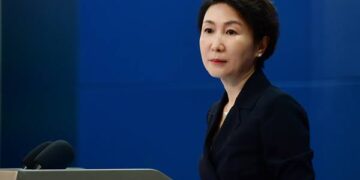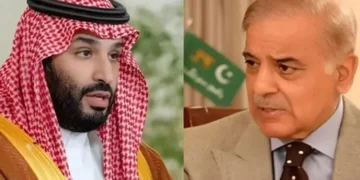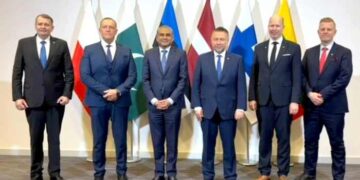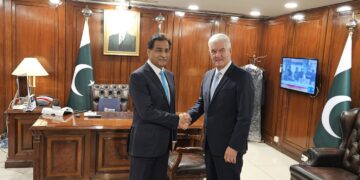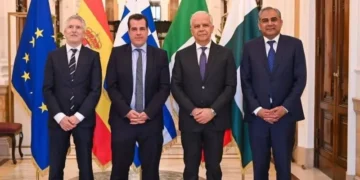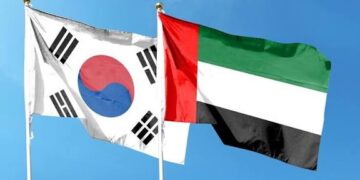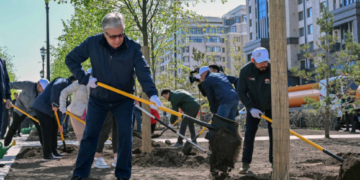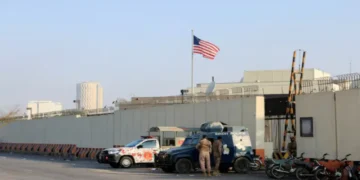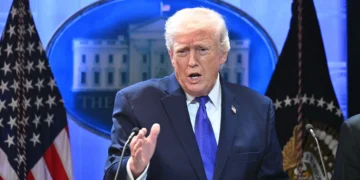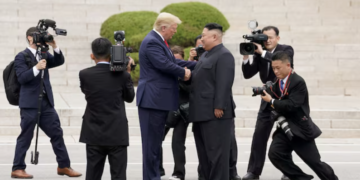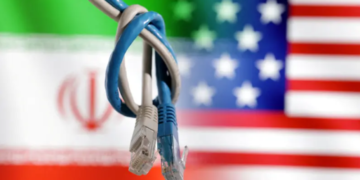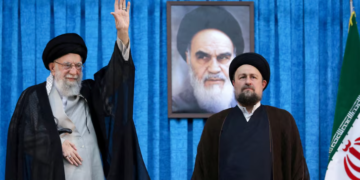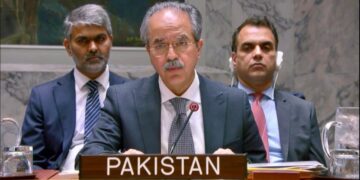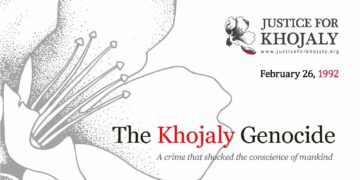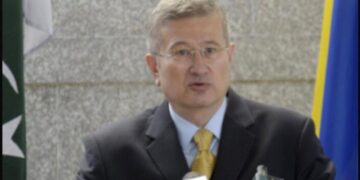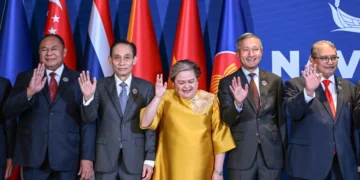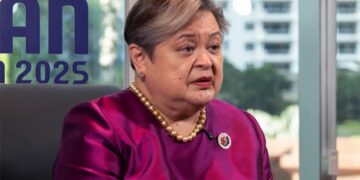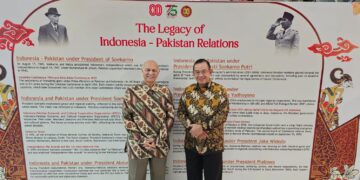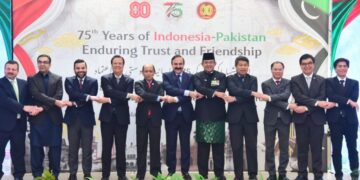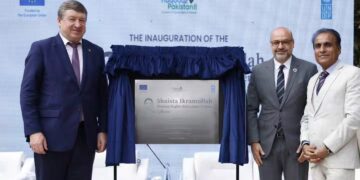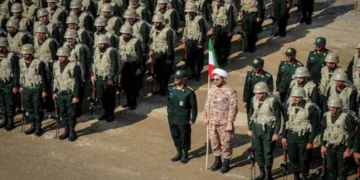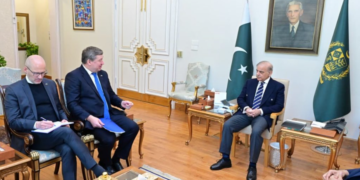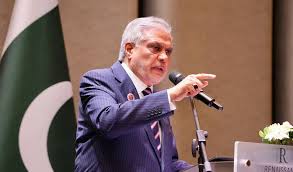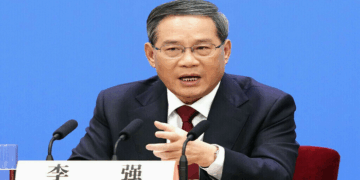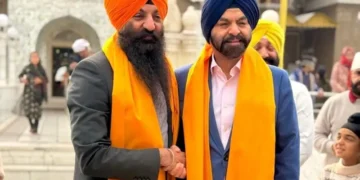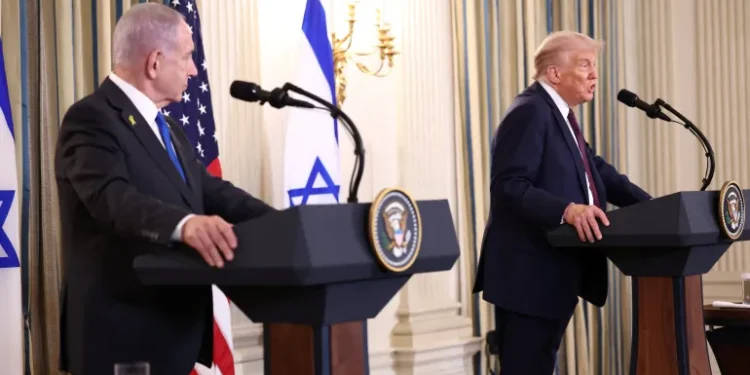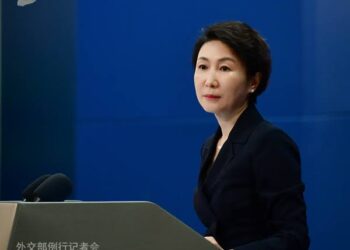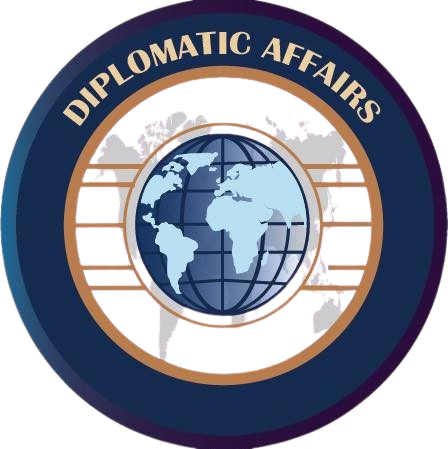WASHINGTON, DC; United States President Donald Trump and Israeli Prime Minister Benjamin Netanyahu jointly unveiled a peace initiative on Monday aimed at ending the war in Gaza, a conflict that has ravaged the territory for nearly two years.
Speaking at a high-profile press conference in Washington, President Trump hailed the agreement as a “big, big day for peace,” emphasizing that support for the plan extended well beyond Israel and the United States. In a surprising acknowledgment, he singled out Pakistan’s Prime Minister Shehbaz Sharif and Chief of Army Staff Field Marshal Asim Munir for backing the proposal, thanking them for what he called their “crucial support.”
“The prime minister and the field marshal of Pakistan … they were with us right from the beginning. In fact, they just put out a statement that they fully believe in this pact. They back this 100 percent,” Trump declared, underscoring Islamabad’s visible role in the process.
Trump’s Vision: Toward “Eternal Peace” in the Middle East
Trump framed the Gaza initiative as part of a larger strategy for long-term stability in the Middle East. He said his administration’s 20-point plan, released earlier in the day by the White House, was designed not only to stop the fighting in Gaza but also to pave the way for a broader regional settlement.
“This is part of the bigger picture, which is peace in the Middle East … let’s call it ‘eternal peace in the Middle East’,” he told reporters.
The US president noted that consultations with Arab and Muslim nations had shaped the proposal, crediting leaders across the region as well as allies in Europe. “These are done with total consideration and working with the nations we are talking about,” Trump said, insisting the plan had been widely welcomed.
Core Elements of the US Proposal
According to Trump, the key pillar of the plan is the release of all Israeli hostages within 72 hours of Israel’s acceptance of the deal. In return, Israel would commit to phased withdrawals from Gaza, while 250 Palestinians serving life sentences and 1,700 detainees held since October 7, 2023, would be released.
Other major features include:
- Demilitarisation of Gaza with Arab and Muslim countries tasked with dismantling Hamas’ military infrastructure.
- Dismantling of terror tunnels and weapons production sites across the enclave.
- Establishment of a new transitional authority to oversee Gaza’s civilian administration.
- A phased Israeli withdrawal tied to verified demilitarisation benchmarks.
- Creation of a new international monitoring mechanism dubbed the “Board of Peace,” to be led by regional leaders, Israel, and chaired personally by Trump.
Trump also revealed that the World Bank would help recruit and train a technocratic government for Gaza made up of Palestinians and international experts, with Hamas and similar groups excluded entirely from governance.
Trump Warns Hamas
While expressing optimism that Hamas would accept the deal, Trump issued a pointed warning.
“If Hamas rejects the deal, which is always possible … I have a feeling that we’re going to have a positive answer, but if not, as you know Bibi, you have my full backing to do what you have to do,” Trump said, turning to Netanyahu.
The US president stressed that the ultimate aim was to eliminate “the danger Hamas poses” while ensuring Gazans could live peacefully under a new system.
Netanyahu’s Endorsement
Taking the floor after Trump, Netanyahu wholeheartedly endorsed the US proposal, calling it consistent with Israel’s own conditions for ending the war.
“I support your plan to end the war in Gaza, which achieves our war aims,” Netanyahu told Trump. “It will bring back to Israel all of our hostages, dismantle Hamas’ military capabilities and its political rule, and ensure that Gaza never again poses a threat to Israel.”
The Israeli leader credited the sacrifices of Israeli soldiers and described the conflict as “a war between civilisation and barbarism.”
He laid out Israel’s five principles for the post-war scenario:
- Immediate return of all hostages (alive and deceased).
- Complete disarmament of Hamas.
- Full demilitarisation of Gaza.
- Continued Israeli security control, including a security perimeter.
- Civilian governance of Gaza without Hamas or the Palestinian Authority.
Netanyahu said that if Hamas agrees, Israel would begin a “modest withdrawal” within days, linked to the release of hostages. Further withdrawals would be tied to the progress of disarmament under the international oversight body.
Pakistan’s Role and Shehbaz Sharif’s Reaction
Pakistan emerged as an unexpected but significant player in this unfolding peace initiative. President Trump praised both Prime Minister Shehbaz Sharif and Field Marshal Asim Munir for early support of the plan.
Prime Minister Shehbaz Sharif, speaking earlier in London, also welcomed the US-led proposal. In a post on X (formerly Twitter), he said:
“I welcome President Trump’s 20-point plan to ensure an end to the war in Gaza. I am also convinced that durable peace between the Palestinian people and Israel would be essential in bringing political stability and economic growth to the region.”
He also lauded Trump’s leadership and his special envoy Steve Witkoff for their efforts, adding that the implementation of a two-state solution remained “essential for lasting peace.”
Shehbaz highlighted a recent meeting in New York on the sidelines of the UN General Assembly where leaders from Pakistan, Saudi Arabia, Qatar, the UAE, Egypt, Jordan, Türkiye, and Indonesia had engaged with Trump on Gaza. He described the talks as “very constructive,” expressing hope that a ceasefire would follow soon.
Wider Context
The conflict in Gaza has devastated the region, with more than 65,000 Palestinians killed and over 167,000 injured in less than two years, according to UN figures. Millions have been displaced, and earlier this month, UN investigators accused Israel of committing genocide in its campaign, citing statements by top officials as incitement.
The White House stressed that the new plan was designed to prevent further bloodshed and to rebuild Gaza under a demilitarised, internationally supervised framework.
Looking Ahead
Trump described the agreement as “the closest we’ve ever come to real peace” and hinted that even Iran could eventually be included in the Abraham Accords, a framework initially launched during his first term.
“I long ago said that Iran would be a member of the Accords,” he remarked, adding that the region now had “a chance for everlasting peace.”
The joint press conference closed with Netanyahu thanking Trump personally for his leadership, declaring: “We are taking the next step to win the war and expand the peace.”
For now, the focus shifts to Hamas, whose acceptance or rejection of the plan will determine whether the war in Gaza finally ends—or whether the cycle of violence continues.
SOURCE; Agencies / Al Jazeera

